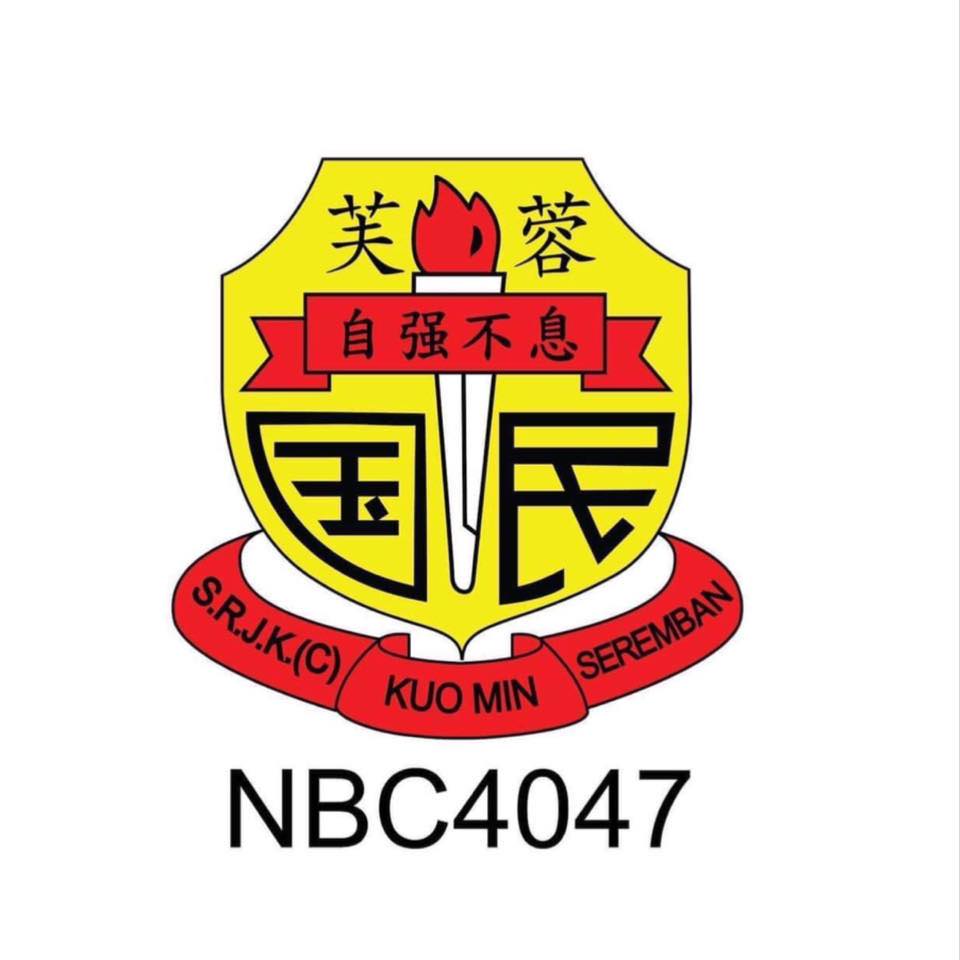Kuomintang History: China's Civil War & Nationalist Party
Was the dream of a unified and prosperous China forever fractured by internal strife and ideological clashes? The Kuomintang's journey, marked by both triumph and tragedy, stands as a stark testament to the tumultuous forces that shaped 20th-century China, and its legacy continues to resonate in the geopolitical landscape of today.
The Kuomintang (KMT), also known as the Chinese Nationalist Party, held sway over China from 1927 to 1948, a period punctuated by both progress and profound upheaval. Its eventual retreat to Taiwan marked a turning point in Chinese history, leaving behind a complex and contested legacy on the mainland. The party's very name, translating to the "National People's Party of China," encapsulates its core mission: to champion the cause of Chinese nationalism and build a modern, unified nation.
The seeds of the KMT's eventual downfall were sown long before its formal establishment. Following Japan's defeat in 1945, the simmering civil war with the Chinese Communist Party (CCP) reignited with renewed ferocity. This conflict, rooted in fundamental ideological differences and fueled by years of mutual distrust, would ultimately determine the fate of China. The KMT, weakened by years of war and plagued by internal divisions, found itself increasingly outmaneuvered by the CCP's disciplined and highly motivated forces.
- Michael Mulheren From Skokie To Fallout His Incredible Journey
- Back Tattoo Ideas Designs Inspiration More
| Category | Information |
|---|---|
| Name | Kuomintang (KMT), Chinese Nationalist Party |
| Alternative Name | National People's Party of China |
| Ideology | Chinese Nationalism, Anti-Communism |
| Period of Rule in Mainland China | 1927-1948 |
| Current Location | Taiwan (Republic of China) |
| Key Figures | Sun Yat-sen, Chiang Kai-shek, Lee Teng-hui, Ma Ying-jeou |
| Major Events | Northern Expedition, Second Sino-Japanese War, Chinese Civil War, Retreat to Taiwan |
| Political Stance in Taiwan | Historically favored eventual reunification with mainland China, though views have evolved |
| Related Concepts | Three Principles of the People, Chinese Civil War, Taiwan's Political Status |
| Official Website | Official KMT Website |
Internal discord further hampered the KMT's ability to effectively combat the communist threat. Within the party itself, factions vied for power, undermining its unity and resolve. A branch of the nationalist party, critical of Chiang Kai-shek's leadership, openly challenged his authority, exacerbating the existing divisions within the KMT ranks. This internal strife not only weakened the party's military capabilities but also eroded public confidence in its ability to govern.
The KMT's struggles were not limited to the battlefield. Corruption and economic mismanagement further alienated the population, creating fertile ground for communist propaganda. While the KMT sought to modernize China's economy and infrastructure, its efforts were often hampered by inefficiency and graft. This, coupled with the widespread poverty and inequality that plagued the country, fueled resentment and contributed to the growing support for the CCP, which promised land reform and a more equitable society.
The arrest of Kung's son, David, and the subsequent blackmail threats against the Chiang family underscore the level of corruption and political intrigue that permeated the KMT regime. Such incidents eroded public trust and further damaged the party's reputation. These internal power struggles and acts of corruption distracted from the pressing need to address the challenges facing the nation and ultimately contributed to the KMT's downfall.
- Christopher Cousins Breaking Bad Star More Trivia
- Potomac River Plane Crash Photos Victims Amp Details Emerge
The early 20th century saw the burgeoning of Kuomintang branches in various locations, reflecting the party's efforts to expand its influence and mobilize support. As early as 1913, numerous Kuomintang branches were being established, demonstrating the party's early commitment to grassroots organization and political outreach. These lodges served as vital hubs for disseminating the KMT's message and recruiting new members, playing a crucial role in shaping the political landscape of the time. Above all, leaders urged members to extend the work of existing Kuomintang lodges and to organize new branches, recognizing the importance of a strong and well-organized party structure.
Historical records mention locations such as "Km 1 jalan besar nilai 71800 nilai negeri sembilan," and addresses like "(c) kuo min seremban address :" and "Jalan tun dr.ismail ,70200 seremban n.s.d.k tel\/fax :" or "Jalan tun dr ismail 70200 seremban negeri sembilan," perhaps referencing locations connected to Kuomintang activities or individuals sympathetic to the nationalist cause. Publications like "Shanghai min kuo sin wen" likely served as platforms for disseminating the KMT's ideology and reporting on events relevant to the nationalist movement. These details offer glimpses into the KMT's extensive network and its efforts to connect with the Chinese population across various regions.
Despite its ultimate defeat on the mainland, the Kuomintang's legacy remains significant. The party's efforts to modernize China, its role in resisting Japanese aggression, and its contributions to the development of Taiwan have all left an indelible mark on history. The KMT's story serves as a reminder of the complex and often contradictory forces that have shaped modern China, and its impact continues to be felt in the ongoing debates about national identity, political ideology, and the future of cross-strait relations. The party's long and winding journey underscores the enduring challenges of nation-building and the importance of unity, integrity, and effective leadership in navigating the turbulent waters of political change.
Furthermore, the KMT's experience offers valuable lessons for political parties around the world. The importance of maintaining internal cohesion, addressing corruption, and responding to the needs of the population cannot be overstated. The KMT's failures serve as a cautionary tale, highlighting the dangers of factionalism, complacency, and detachment from the concerns of ordinary citizens. By studying the KMT's history, we can gain a deeper understanding of the complexities of political power and the challenges of building a stable and prosperous society. The lessons learned from the KMT's triumphs and tribulations remain relevant today, as nations around the world grapple with issues of governance, development, and national identity.
The defeat of the Kuomintang in 1948 and its subsequent retreat to Taiwan did not mark the end of its story. In Taiwan, the KMT played a pivotal role in transforming the island into an economic powerhouse and a vibrant democracy. Under the leadership of figures like Chiang Ching-kuo and Lee Teng-hui, the KMT implemented significant economic reforms, promoted education, and gradually transitioned Taiwan towards a more democratic political system. This transformation stands as a testament to the KMT's resilience and its ability to adapt to changing circumstances. The KMT's experience in Taiwan provides a valuable case study in how a political party can reinvent itself and contribute to the development of a prosperous and democratic society.
The relationship between the Kuomintang and mainland China remains a complex and sensitive issue. While the KMT historically advocated for eventual reunification, its views have evolved over time, reflecting the changing political landscape and the growing sense of Taiwanese identity. Today, the KMT navigates a delicate balance between maintaining ties with the mainland and upholding Taiwan's democratic values and distinct identity. The future of cross-strait relations will undoubtedly be shaped by the KMT's actions and its ability to bridge the divide between Taiwan and mainland China. The party's role as a potential mediator between the two sides is a crucial aspect of its ongoing legacy.
The Kuomintang's journey is a testament to the enduring power of nationalism and the complex interplay of political, economic, and social forces that shape the course of history. From its early days as a revolutionary movement to its years in power on the mainland and its subsequent transformation in Taiwan, the KMT has played a central role in shaping the destiny of China and the surrounding region. Its story serves as a reminder of the challenges of nation-building, the importance of effective leadership, and the enduring relevance of political ideology. The Kuomintang's legacy continues to be debated and reinterpreted, but its significance in the history of modern China is undeniable.
The impact of the Kuomintang extends far beyond the political realm. The party's policies and actions have had a profound influence on Chinese culture, society, and economy. The KMT's emphasis on education and modernization helped to transform China's social landscape, creating new opportunities for upward mobility and contributing to the growth of a vibrant middle class. The KMT's efforts to promote Chinese culture and traditions also played a significant role in shaping national identity and fostering a sense of shared heritage. The party's legacy is thus woven into the fabric of Chinese society, shaping its values, institutions, and aspirations.
In conclusion, the Kuomintang's story is a multifaceted and enduring narrative of political ambition, ideological struggle, and national transformation. From its tumultuous rise to power on the mainland to its subsequent reinvention in Taiwan, the KMT has left an indelible mark on Chinese history. Its legacy continues to be debated and reinterpreted, but its significance in shaping the modern political landscape of China and the surrounding region is undeniable. The Kuomintang's journey offers valuable insights into the complexities of nation-building, the challenges of political leadership, and the enduring power of national identity. As China continues to evolve and its role in the world continues to grow, the Kuomintang's story will undoubtedly remain a subject of intense interest and scholarly inquiry. The party's experience serves as a reminder of the enduring challenges of navigating the turbulent waters of political change and the importance of adapting to evolving circumstances. The lessons learned from the KMT's triumphs and tribulations continue to resonate today, as nations around the world grapple with issues of governance, development, and international relations. The Kuomintang's legacy is thus a living testament to the enduring power of history and its capacity to inform our understanding of the present and shape our aspirations for the future.
Furthermore, the Kuomintang's experience highlights the importance of international relations in shaping the destiny of nations. The party's interactions with other countries, particularly the United States and Japan, had a profound impact on its fortunes. The KMT's reliance on foreign aid and its struggles to navigate the complexities of international politics underscore the challenges of maintaining national sovereignty in a globalized world. The party's legacy serves as a reminder of the interconnectedness of nations and the importance of diplomacy, cooperation, and mutual understanding in promoting peace and prosperity.
The Kuomintang's story also sheds light on the role of individuals in shaping the course of history. The actions of key figures like Sun Yat-sen, Chiang Kai-shek, and Lee Teng-hui had a profound impact on the party's trajectory and the fate of China. Their leadership, vision, and strategic decisions played a crucial role in determining the KMT's successes and failures. The party's legacy serves as a reminder of the importance of strong and ethical leadership in guiding nations through times of crisis and transition. The actions of these individuals continue to be studied and debated, offering valuable insights into the complexities of political leadership and the challenges of navigating the corridors of power.
In addition to its political and economic impact, the Kuomintang also played a significant role in promoting cultural exchange and intellectual discourse. The party's support for education and its encouragement of artistic expression helped to foster a vibrant intellectual and cultural environment in both mainland China and Taiwan. The KMT's legacy serves as a reminder of the importance of cultural diversity and the power of ideas to shape societies and transform lives. The party's contributions to the arts, literature, and scholarship continue to be celebrated and studied, offering valuable insights into the richness and complexity of Chinese culture.
The Kuomintang's journey is a testament to the resilience and adaptability of the human spirit. Despite facing numerous challenges and setbacks, the party has managed to reinvent itself and continue to play a significant role in the political landscape of Taiwan. The KMT's ability to adapt to changing circumstances and its commitment to democratic values serve as an inspiration to political parties around the world. The party's legacy is a reminder that even in the face of adversity, it is possible to overcome obstacles and build a better future. The Kuomintang's story is thus a source of hope and inspiration for those who believe in the power of human agency and the potential for positive change.
Furthermore, the Kuomintang's experience highlights the importance of historical memory and the ongoing need to grapple with the complexities of the past. The party's legacy continues to be debated and reinterpreted, reflecting the ongoing struggle to understand the events that shaped modern China. The KMT's story serves as a reminder of the importance of preserving historical records, promoting critical thinking, and fostering open dialogue about the past. By engaging with the complexities of history, we can gain a deeper understanding of the present and work towards building a more just and equitable future.
The Kuomintang's legacy is thus a multifaceted and enduring narrative of political ambition, ideological struggle, national transformation, and human resilience. From its tumultuous rise to power on the mainland to its subsequent reinvention in Taiwan, the KMT has left an indelible mark on Chinese history. Its story continues to be debated and reinterpreted, but its significance in shaping the modern political landscape of China and the surrounding region is undeniable. The Kuomintang's journey offers valuable insights into the complexities of nation-building, the challenges of political leadership, the enduring power of national identity, and the importance of historical memory. As China continues to evolve and its role in the world continues to grow, the Kuomintang's story will undoubtedly remain a subject of intense interest and scholarly inquiry.
The Kuomintang's enduring influence can also be seen in the ongoing debates about Taiwan's political status. The party's historical ties to mainland China and its advocacy for eventual reunification have shaped the discourse surrounding cross-strait relations. While the KMT's position on reunification has evolved over time, its historical connection to the mainland remains a significant factor in shaping the political landscape of Taiwan. The party's legacy thus continues to influence the debate about Taiwan's future and its relationship with mainland China.
The Kuomintang's story is a reminder that history is not simply a collection of facts and dates but a complex and contested narrative that continues to shape our understanding of the present and our aspirations for the future. The party's legacy is thus a living testament to the enduring power of history and its capacity to inform our understanding of the world and our place in it. By engaging with the complexities of the past, we can gain a deeper appreciation for the challenges and opportunities that lie ahead and work towards building a more just and equitable future for all.
- Untold Story Mount St Helens Eruption In 1980 Rare Photos
- Lauren Hogg Parkland Survivor Activist Amp Her Impact Now

SJKC Kuo Min, Seremban, Negeri Sembilan 校徽

国民华小 (SJKC Kuo Min Gemas, Gemas, Negeri Sembilan) 30网校

SJKC Kuo Min, Nilai, Negeri Sembilan 2